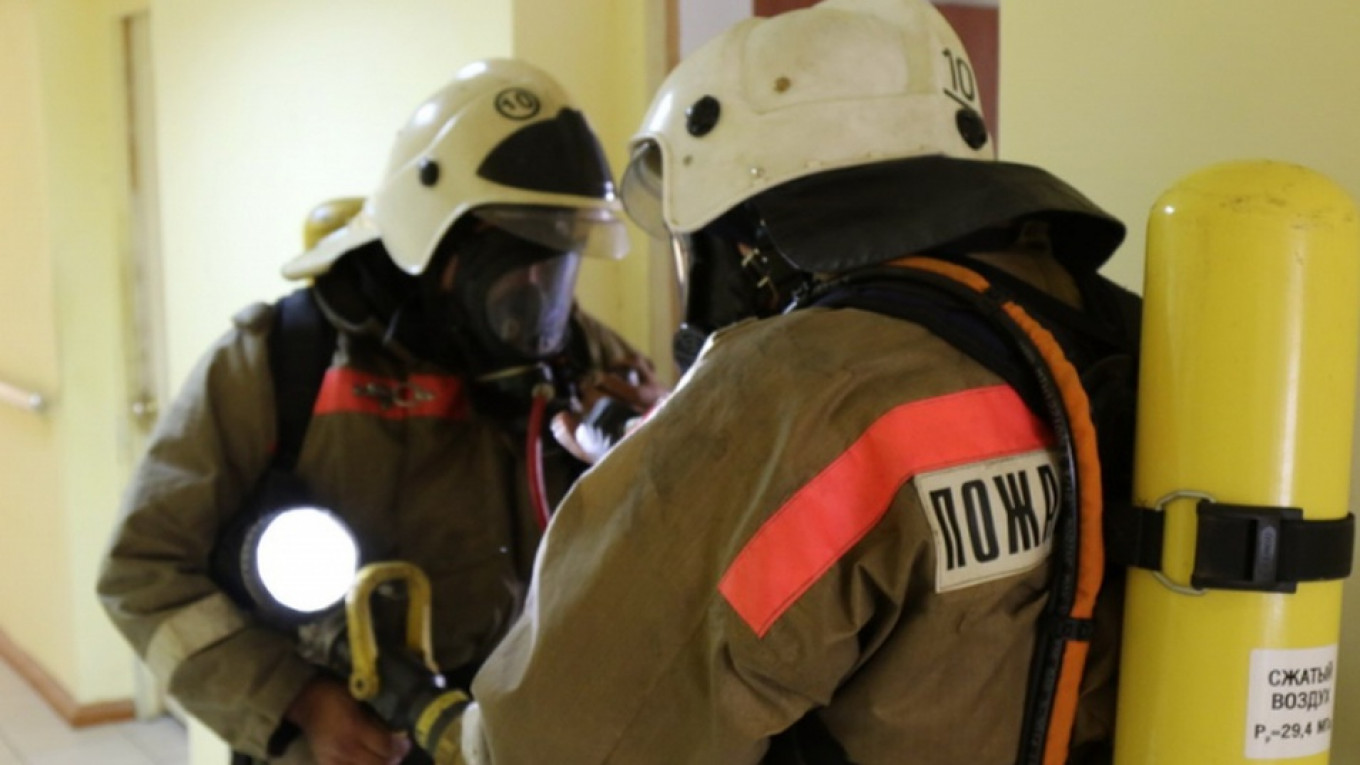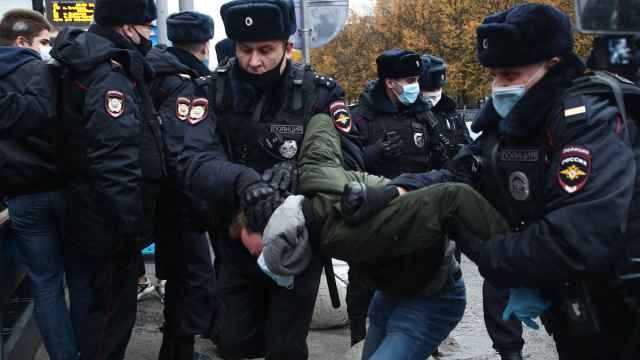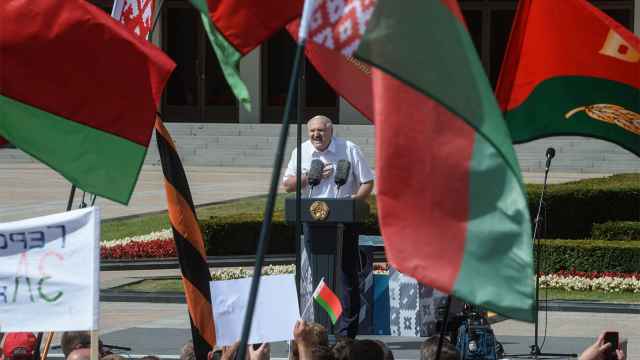Firefighters in the Russian Far East have declared a hunger strike to protest poor working conditions, including leaky roofs, moldy offices and a dire lack of equipment.
Russia’s fire service has been paralyzed by a deep internal crisis after 278,000 staff members became part of the Emergency Situations Ministry in 2002, The Moscow Times has detailed last year. Leadership changes affected almost every operational process – from training to dealing with major accidents and making tactical decisions.
Khangalassky district firefighters in the Far East Sakha republic last went on a hunger strike in April to protest low wages and a lack of equipment, staff and overtime pay. Their union leader accused the authorities of failing to comply with more than 40 lawsuits that the local fire department had won over workplace violations.
Last week, the firemen announced plans to resume the hunger strike over what they said was the refusal of local authorities to address their demands. According to Russia’s Dozhd TV news channel, a total of 14 Khangalassky firefighters had joined the hunger strike by Monday night.
“Nobody will be pushed around by the protesters,” the head of Sakha’s public security committee, Yury Zaytsev, said during a briefing on Friday, in which he said that most of the firefighters’ April demands had been met.
Sakha needs an additional 700 million rubles ($10.7 million) to renovate the decrepit fire stations and buy badly needed equipment, Zaytsev added.
A statement on the fire service’s website says the authorities and the union are at odds over proposed pay raises, vacation days and major repairs. A Sakha firemen’s union representative said at the briefing that negotiations on a collective bargaining agreement were scheduled to finish on Nov. 1.
Russia’s ex-minister of emergency situations Vladimir Puchkov criticized the workers who staged the April hunger strike as “pseudo-firefighters.”
“I wouldn’t give a bread crust to those slackers,” he had said.
A Message from The Moscow Times:
Dear readers,
We are facing unprecedented challenges. Russia's Prosecutor General's Office has designated The Moscow Times as an "undesirable" organization, criminalizing our work and putting our staff at risk of prosecution. This follows our earlier unjust labeling as a "foreign agent."
These actions are direct attempts to silence independent journalism in Russia. The authorities claim our work "discredits the decisions of the Russian leadership." We see things differently: we strive to provide accurate, unbiased reporting on Russia.
We, the journalists of The Moscow Times, refuse to be silenced. But to continue our work, we need your help.
Your support, no matter how small, makes a world of difference. If you can, please support us monthly starting from just $2. It's quick to set up, and every contribution makes a significant impact.
By supporting The Moscow Times, you're defending open, independent journalism in the face of repression. Thank you for standing with us.
Remind me later.






